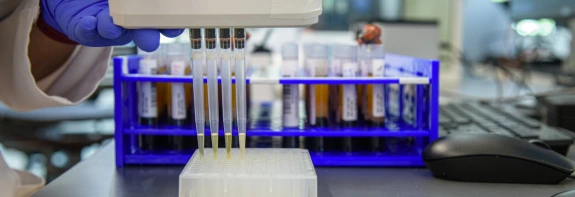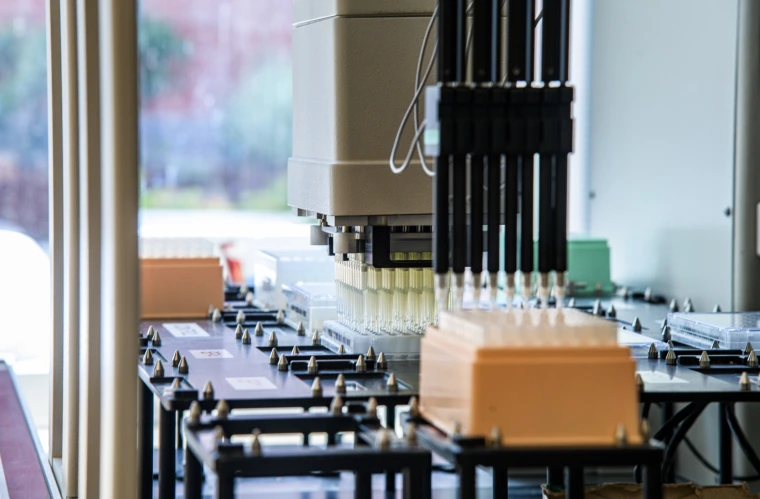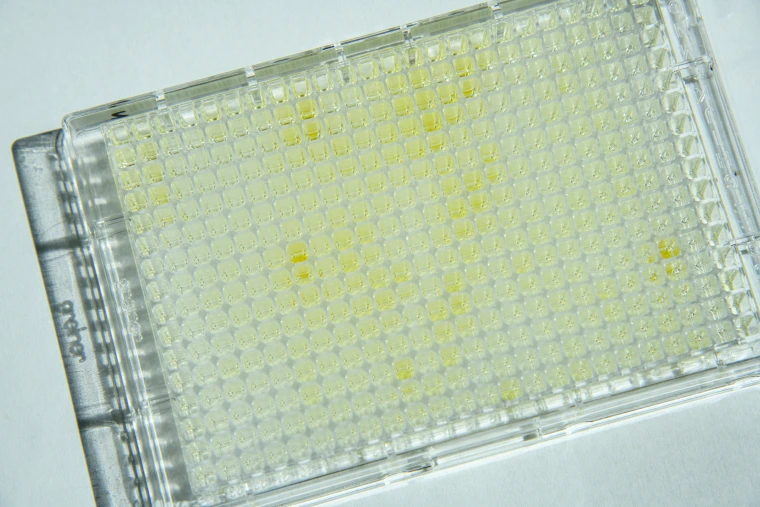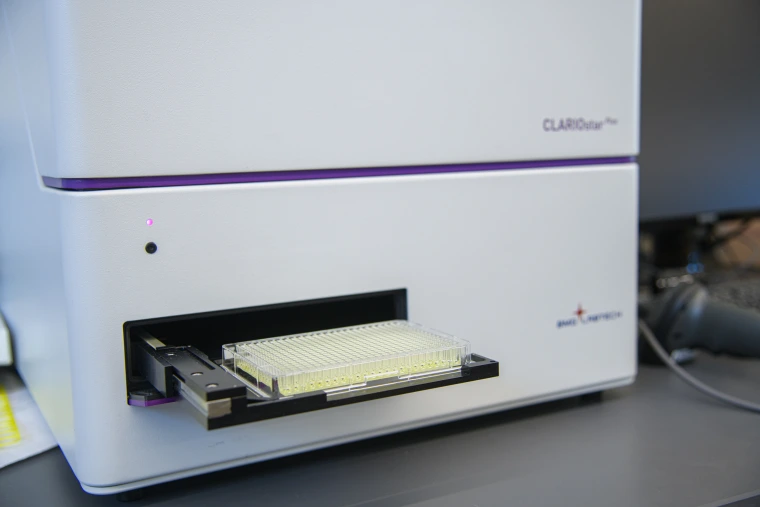Enzyme-linked Immunosorbent Assays
Custom and kit-based ELISA Services
From running commercially available ELISA kits to developing custom assays, AZClinCore can perform Enzyme-linked Immunosorbent Assays appropriate for your research. From a small project with a single biomarker to employing extensive liquid-handling Beckman robotics to run hundreds or thousands of samples on multiple targets, AZClinCore works with clients to find best approach for their ELISA needs while optimizing costs and ensuring data quality.

ELISA Services
General Information
Enzyme-linked immunosorbent assays (ELISA) come in different varieties (direct, sandwich, competitive and indirect) but all work to bind a biomarker of interest to a matching antibody in the assay and then remove any unbound antibodies. The subsequent reaction then produces a detectable signal, such as a color change, to quantify the bound targets.
Sample Input
Biological specimens (typically sera, but also performed with plasma, saliva or other specimens) in barcoded tubes, accompanied by an electronic order submission.
Details
Sample Preparation Details
A one-time cost is charged to transfer an appropriate portion of the biological specimens into 96-well plates to facilitate downstream testing. Once the sample plates are created, they will be used as the source-plate for making dilutions used for each of the biomarkers that are tested. Each source plate is configured to accommodate controls (typically 16) and up 80 samples.
Workflow
In a typical “sandwich” ELISA method the surface of a microplate is first coated with a capture antibody. When biological samples are added, the target molecule binds to the capture antibody if present. Then, a detection antibody is added, binding (or “sandwiching”) the target between the two primary antibodies, each detecting different epitopes on the target molecule. After the detection antibody is added to the assay, TMB is added to produce the color. The assay is then quenched, causing a color change that can be quantified using an ELISA plate reader.
The UofA's Arizona Molecular Clinical Core (AZClinCore) employs either commercially available kit-based assays or will develop custom assays depending on the project's needs. AZClinCore performs ELISA protocol steps using a combination of manual and robotic methods facilitated by Beckman Biomek liquid handling workstations. AZClinCore uses a BMG CLARIOstar Plus Plate Reader to record the optical density of the assay and the biomarker concentration is assigned to each sample against a linear standard curve of known controls.
As an added quality control check for each sample, AZClinCore evaluates the 570 & 630 nm readings of the assay in addition to the (typically) targeted 450 nm reading; a high 630 nm absorbance of the ELISA assay may indicate the assay was not fully quenched, suggesting incomplete washing occurred or interfering substances may be present in the reaction.
Depending on the sample volume for the project and availability of capture antibodies, AZClinCore may run samples in 384-well plates using a customized methods on our Beckman liquid handling workstations. This reduces sample-to-sample variability in the data since a greater number of samples can be processed simultaneously with the added benefit of reduced project time and cost.
Price

Turnaround Time
Depends on the project; please inquire.
| CALL US | EMAIL US | VISIT US |
|---|---|---|
| Call Center (520) 626-5002 Fax (520) 626-7701 | Contact Us - online form AZClinCore@arizona.edu | Arizona Molecular Clinical Core 1657 E Helen St. Tucson, AZ 85721 |


Copyright © 2023 Arizona Molecular Clinical Core All Rights Reserved



